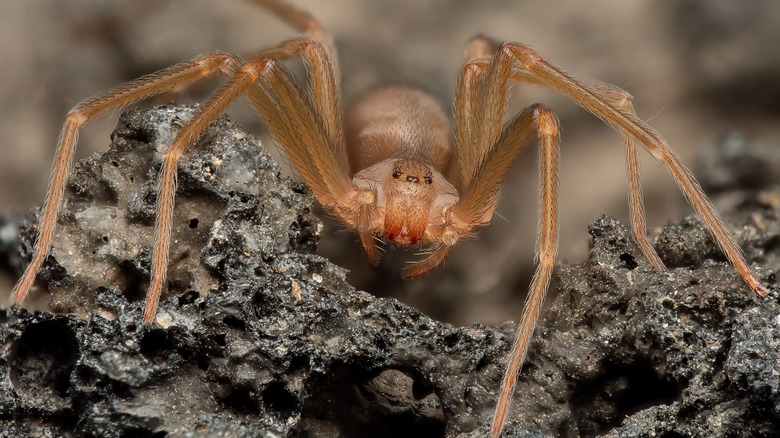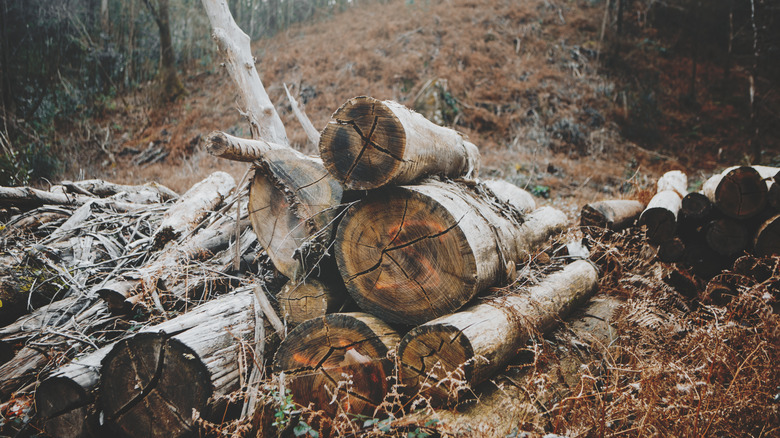Brown Recluse Spiders Are Most Likely To Live In These Outdoor Spots
Some of the most feared spiders of the arachnid world seem to be the brown recluse, or Loxosceles reclusa, which live throughout 16 states, primarily in the Midwest and South. Like their name suggests, they are reclusive and don't live out in the open. While you can find brown recluse spiders lurking in your home, they also live outdoors in dark, secretive places, such as under rocks, loose boards, and tree bark.
As they're nocturnal, these spiders are most active at night. If you come across one of their habitats, you may get bitten, but they aren't aggressive. The bites often occur as they defend their territory, and are rarely fatal. Symptoms from brown recluse bites can include itching, rash, pain, fever, and dizziness, which is why you want to avoid disturbing them. In more severe cases, the bites can cause necrosis as the skin's tissues, nerves, and blood vessels die. Here's how to avoid disturbing a brown recluse spider out in the wild.
Brown recluse spider outdoor habitats
If you're looking for these spiders outdoors, you won't find them in the sunshine. First and foremost, brown recluse spiders choose dark nesting sites with warmth and little moisture within their range. If you don't live in a state with brown recluse spiders (such as California), you won't encounter them outside. However, if you reside in one of their native states, it's possible you'll see them, as these spiders can be common in your backyard. It's typical for them to live inside wall cracks, but they can also nest under leaves, in caves, and under piles of logs. If you or your child turns over a rock in the wild, you may come across a startled brown recluse spider.
Brown recluse spiders love rotting tree bark, wedging themselves into the bark of a dead tree. When handling any wood in your backyard, take efforts to guard yourself against a spider bite by wearing protective gloves. Remember, they often bite when threatened. While these spiders can be scary, they are beneficial, as they eat troublesome insects and other resident spiders within our homes.

